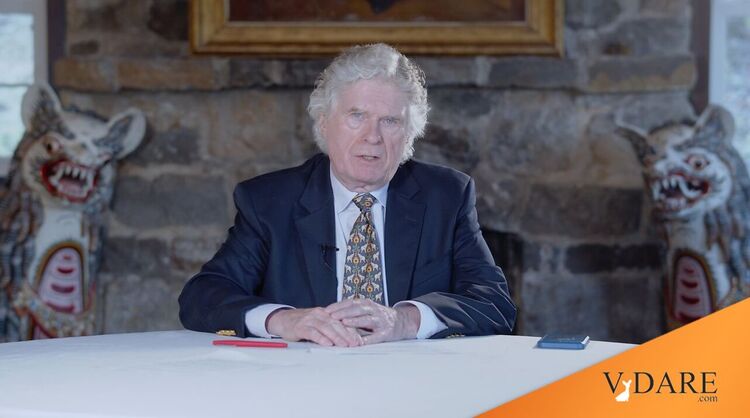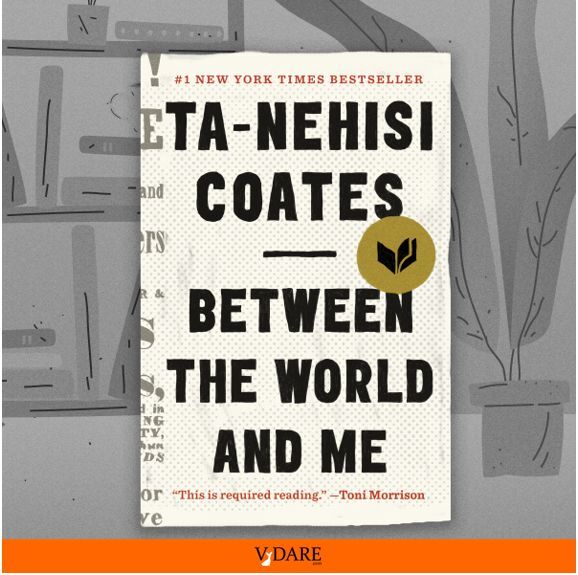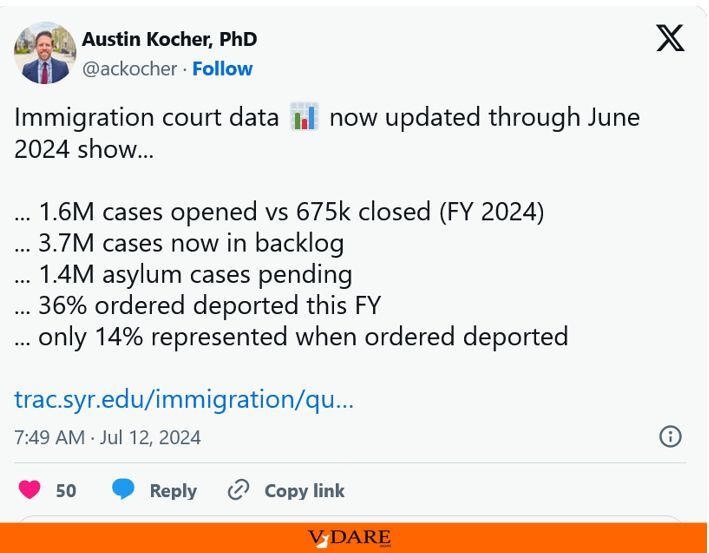From the New York Times:
The Secret of Jamaica’s RunnersNo, not in running, but in sprinting: Jamaicans are not strong beyond 400 meters and are nonexistent in the distance races. Black Africans in general tend to be efficient runners for biomechanical reasons, but muscular West Africans tend to be better at the sprints and elongated East Africans from high altitude tend to be better at the distance races. The last 64 Olympic finalists in men’s 100 meter dash going back through 1984 have had most of their ancestry tracing back to the Atlantic side of the African continent.By ORLANDO PATTERSON AUG. 13, 2016
CAMBRIDGE, Mass. — Among the most enigmatic features of Jamaica, an island of only 2.8 million people, is its astonishing supremacy in running.
Currently, the world’s fastest man and woman are both Jamaicans. Nineteen of the 26 fastest times ever recorded in 100 meter races were by Jamaicans. The list goes on.West Indians have been strong in Olympic sprinting since 1948. (Despite Patterson’s Jamaican chauvinism, there’s nothing special about Jamaica compared to the smaller English-speaking West Indian islands, which also do extremely well for their even smaller population sizes.)Jamaica’s global dominance is broad and deep, both male and female, and started to emerge over half a century ago. At the 1952 Olympics in Helsinki, Jamaica was ranked 13th by the International Olympic Committee. By the 2008 Olympics in Beijing, it was first in sprints, with Usain Bolt winning three gold medals, and an unprecedented clean sweep of the women’s 100 meters.
What happened between 2004 and 2008 to propel the West Indians over African-Americans was that the American heroine of the 2000 Games, Marion Jones, went to prison for lying to federal agents about her PEDs use. Prison concentrates the mind wonderfully, so American performance in sprinting dipped relative to West Indian performance.
The West Indian Olympic heroes, in contrast, didn’t worry about their governments imprisoning them for doing what it takes to bring Olympic glory home to the islands.
As I wrote in VDARE back in 2008:
The Jamaicans argue that the new American drug testing and sanction system has finally leveled the playing field. Americans counter by asserting that now the Jamaicans are more doped than the Americans.From the BBC in 2013:Nobody knows for sure.
Jamaica doping scandals tip of iceberg, says senior drug testerPatterson goes on in the NYT:By David Bond BBC sports editor
Jamaica’s most senior drug tester says the country’s recent rash of failed tests might be the “tip of an iceberg”.
Dr Paul Wright told the BBC that the Caribbean island’s anti-doping regime had been woefully short of the international standards required.
His comments come a week after the World Anti-Doping Agency (Wada) visited Jamaica to investigate claims that the country’s athletes were not being tested rigorously enough.
How do Jamaicans do it? It’s not because of genetics, as some claim. A vast majority of Jamaicans’ ancestors are from West Africa, which has relatively few outstanding sprinters.West Africa is home to tons of outstanding sprinters relative to any group in the world other than the West African Diaspora. (West Africa has nature on its side in sprinting, but the West African Diaspora has nature and nurture).
The last I checked in 2012 there might have been close to an order of magnitude more West Africans who had run 100m in under ten seconds compared to maybe four nonblacks in world history: an Australian who was half Aborigine half Irish, a Frenchman, a Chinese guy, and a Pole. (Here’s the list of the fastest 100m times ever before this Olympics.)
Nor can genetics explain why Jamaicans outperform other blacks in the Americas, especially in Brazil, which has 36 times as many of them.
Some of Brazilian black ancestry traces back to East Africa (e.g., Mozambique), and relatively little traces to places like Nigeria, Ghana, and Senegal where Jamaicans and African-Americans tend to be from. East Africans are seldom outstanding sprinters but are sometimes good distance runners. In contrast, Jamaicans and African-Americans are very similar in which parts of Africa they are from, and have similar profiles in which distances they do best in.
Ask a Jamaican like me (I was born and raised there), and we’ll give you a very different answer: … Jamaica is perhaps the only country in the world where a track and field meet is the premier sporting event.But of course the reason West Indians like sprinting so much is because they have the right nature and nurture to win at the Olympics. Jamaicans only vaguely like the 800m and 1500m and they don’t care about the longer races because they don’t have the genes to win at distance running.
Here are where the fastest Jamaican men rank in all the time lists by distance:
- 100m: #1 Usain Bolt
- 200m: #1 Usain Bolt
- 400m: #41 Rusheen McDonald
- 800m: #2887 Seymour Newman
- 1500m: No Jamaicans in top 7836 times ever
… So the real question is, why is Jamaica nuts for track?
A big advantage that British West Indies countries had in the 20th Century over West Africa was that, due to the healthier climate, they kept a larger leadership caste of whites and middle class mulattos. During the opening ceremonies “Parade of Nations” you’ll notice that a striking proportion of the middle-aged sports bureaucrats representing third world countries in the West Indies and East Africa are white, even in 2016. But that’s not true of sweaty West Africa, which produces a lot of talent but not very well organized teams (as seen in soccer, where West African players make a lot of money in Europe, but West African countries haven’t progressed much in the World Cup since Cameroon’s peak a generation ago).Part of the answer is institutional. The British first introduced organized and informal athletics, and interscholastic competition, to Jamaica and other colonies in the late 19th century. One of Jamaica’s founding fathers, N. W. Manley, was the greatest student athlete of his generation; later, as the revered head of state, he tirelessly promoted track and field.
… These efforts succeeded because of an abundance of very healthy children and young people — the result not of Jamaica’s mountainous terrain, as some have claimed, but of the extraordinary success of a public health campaign partly spearheaded in the 1920s by specialists from the Rockefeller Foundation. …Public health is a good thing.The result was what the historical demographer James Riley calls the Jamaican paradox: one of the rare instances of a poor country with the life expectancy of an advanced society, a health transition that began in the 1920s and improved at one of the fastest paces on record, from 36 years at birth in 1920 to 70 by 1977.
Anyway, as we see here, explanations that integrate nature and nurture are usually better than ones that try to explain everything away by nurture.













